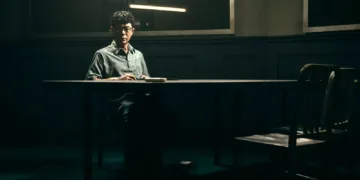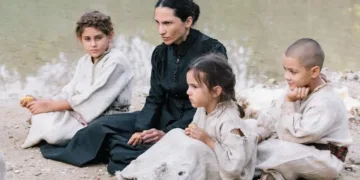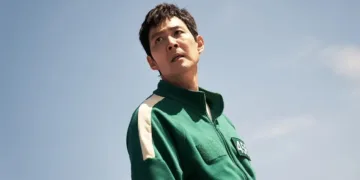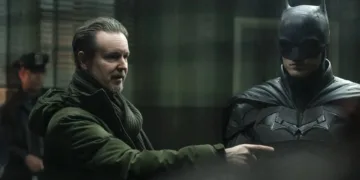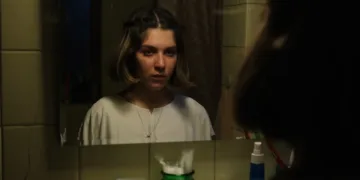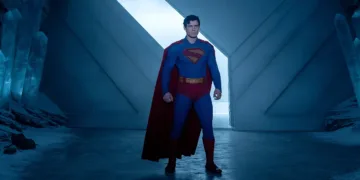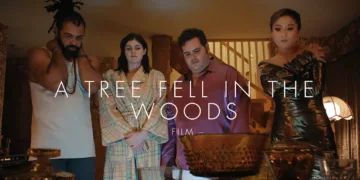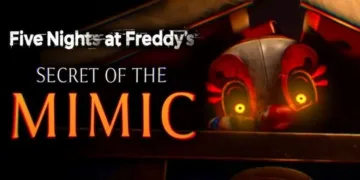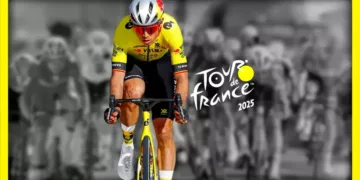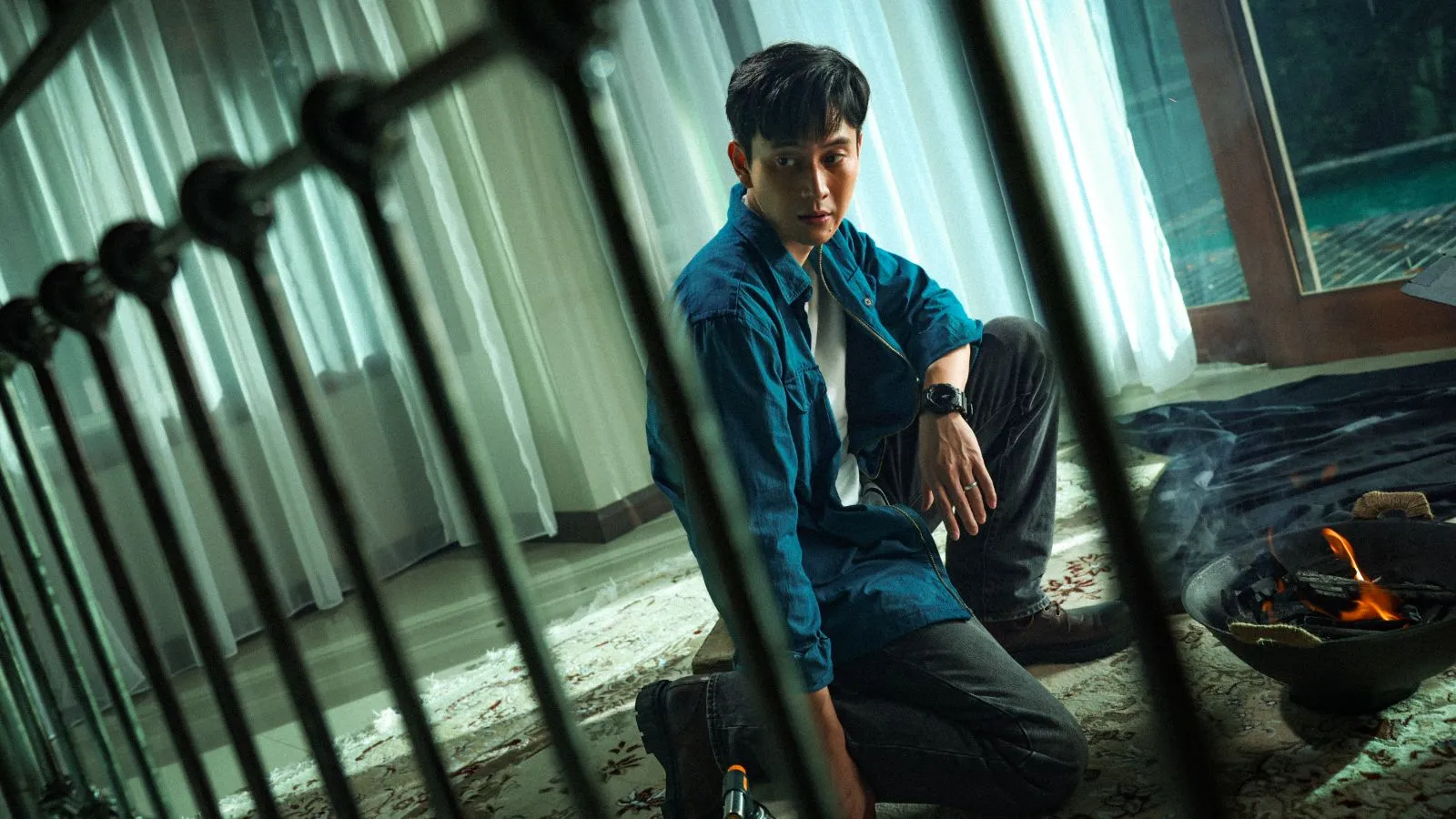A detective thriller draped in marital drama, Behind the Shadows unfolds amid Kuala Lumpur’s humid streets and dimly lit backrooms. Au Yeung Wai-yip (Louis Koo) operates a smoke-filled PI agency, hired to expose unfaithful partners—only to discover his own wife, Kuan Weng Sam (Chrissie Chau), at the heart of his latest adultery case. Co-directors Jonathan Li and Chou Man-yu, reunited after Dust to Dust, steer clear of pure puzzle-solving in favor of the intimate fissures beneath each revelation.
The film’s pulse alternates between furtive stakeouts and charged domestic confrontations, its humid atmosphere and shifting loyalties setting a tone of relentless unease. As an exploration of trust and betrayal, the story pivots on that first tremor—Au’s dawning realization that professional detachment cannot shield him from personal upheaval.
Unraveling Threads
Three distinct assignments kick off the narrative: a missing-person inquiry, a gangster’s suspicion of his moll, and a businessman’s quest that leads Au back home. Each case feeds into a larger mystery when the disappearance connects to a prologue murder and a serial killer’s pattern.
Detective Chen Heong Men (Liu Kuan-ting) enters as both adversary and mirror, his own guilt over a tragic accident shadowing the investigation. Methodical surveillance sequences give way to moments of personal reckoning—Au’s midlife doubts echo the film’s procedural twists, suggesting that every concealed secret carries its own danger.
Scenes of Au and Kuan trading accusations expose years of unspoken resentment, transforming what might have been a secondary subplot into the emotional engine of the plot. Trust fractures in tight close-ups: a hesitant glance, a door snapped shut.
Pacing shifts from contemplative lulls—when Au stares at incriminating photographs—to bursts of urgency as bodies fall. These rhythm changes underscore the film’s thesis: investigative rigor and domestic vulnerability feed each other, revealing how personal failures can distort even the clearest evidence.
Smoke and Neon
Tam Wai-kai’s lens bathes the city in shadows, framing narrow alleys and high-rise facades to suggest that secrets lurk everywhere. Night scenes glint with neon reflections on rain-slick streets, while Au’s cramped office glows under a sterile desk lamp, its cluttered files hinting at casework piled beyond capacity.
Tight framing traps characters in claustrophobic compositions, amplifying their sense of entrapment. Sound design blends distant traffic hum with the drip of leaky pipes and the low whistle of ceiling fans, scoring each sequence with suffocating tension. The score pulses in staccato beats during stakeouts, then softens to a lone piano motif as marital strains surface.
Editing stitches together parallel investigations and domestic disputes, the crosscutting creating a visual echo between courtroom-style interrogations and intimate bedroom confrontations. Production design leans into grit—peeling paint, mismatched furniture, the persistent haze of cigarette smoke—reminding viewers that every surface carries a story of concealment.
Faces in the Dark
Louis Koo anchors the film with an austere intensity, shifting seamlessly from cool professionalism to raw emotional exposure. His Au Yeung registers grief, anger and brittle humor in precise increments, making each revelation feel earned rather than performative.
Chrissie Chau’s Kuan offers flickers of agency—her guarded expressions and quiet moments of defiance hint at depths left underexplored. Liu Kuan-ting’s Chen cuts a stark silhouette, his haunted stare and measured restraint serving as both foil and silent commentary on Au’s unraveling.
Raymond Wong injects levity as Clowy, the gangster friend whose comedic timing eases tautness without undermining stakes. Renci Yeung brings spirited energy to Betty’s scenes, her fiery retorts sparking tension whenever she crosses paths with Au.
Yumi Wong’s missing-person subplot and Eddie Cheung’s weary rival PI Feeble add texture, populating the world with figures who reflect facets of Au’s own crisis. Chemistry crackles in confrontational exchanges—strangers turned collaborators, spouses turned adversaries—each interaction mapping the shifting alliances at the story’s core.
Moments of silence—Au’s vacant gaze at a wedding photo, Chen’s frozen reaction to fresh evidence—speak as loudly as any outburst, underscoring how performance choices elevate this tale of betrayal into a meditation on guilt and redemption.
Behind the Shadows premiered in Hong Kong in 2025 and is seeing limited release across Asia before entering international documentary festivals.
Full Credits
Director: Man Yu Chow, Jonathan Li
Writer: Man Yu Chow
Cast: Louis Koo, Kuan Ting Liu, Chrissie Chau
The Review
Behind the Shadows
Behind the Shadows melds domestic turmoil with detective suspense, buoyed by Louis Koo’s commanding turn and Tam Wai-kai’s shadow-drenched imagery. Its deliberate pace can drag, yet the film’s interrogation of trust and guilt resonates long after the credits fade.
PROS
- Koo’s nuanced emotional range
- Atmosphere of humid, neon-lit KL
- Tension between casework and marriage drama
- Rich sound design
- Sharp cinematography
CONS
- Pacing dips in the midsection
- Underused potential of Chrissie Chau
- Sketchy motivations for some characters
- Occasional genre indecision
